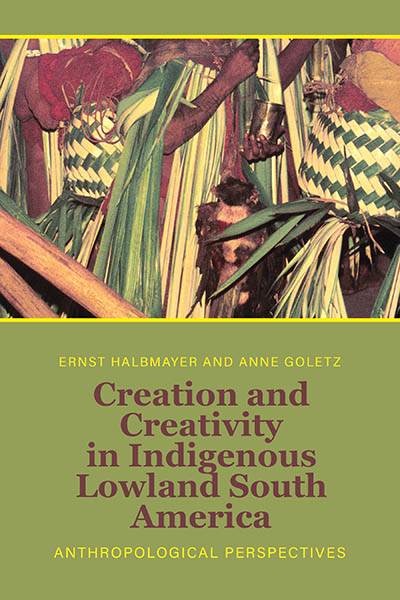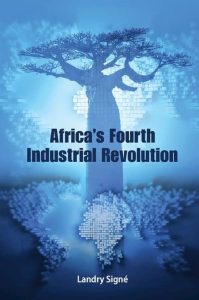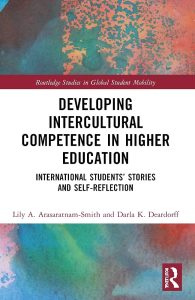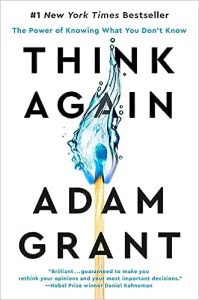Susan O'Rourke | July 31, 2023

Summer is a great time to soak up the sun and dive into a few good reads! This summer we kept an eye out for books that took a deep dive into new research on culture and technology in regions around the world and books that presented us with new ways of thinking about growth and curiosity. Check out the following to take an in-depth look at global topics and let us know what globally focused reading you’ve done this summer!
Creation and Creativity in Indigenous Lowland South America edited by Ernst Halbmayer and Anne Goletz
 This fall, UNC World View will be hosting two programs on indigenous cultures, both local and global: the UNC World View Global Fellows program and the K-12 Global Education Symposium. With that in mind, we were drawn to the newly published text from Ernst Halbmayer and Anne Goletz that helps us think more broadly about different ways people have expressed ideas and created art and examine the diversity of Indigenous creative practices. The essays discuss topics including myth, cosmology, and cosmogony; basketry and weaving; vocal performance; and the ways myths are cultivated and “dispersed in ordinary domestic interactions—such as casual conversations while listening to the radio, jokes, and gossips.” We are looking forward to the informative and creative lessons educators will develop from learning more about Indigenous cultural practices this year!
This fall, UNC World View will be hosting two programs on indigenous cultures, both local and global: the UNC World View Global Fellows program and the K-12 Global Education Symposium. With that in mind, we were drawn to the newly published text from Ernst Halbmayer and Anne Goletz that helps us think more broadly about different ways people have expressed ideas and created art and examine the diversity of Indigenous creative practices. The essays discuss topics including myth, cosmology, and cosmogony; basketry and weaving; vocal performance; and the ways myths are cultivated and “dispersed in ordinary domestic interactions—such as casual conversations while listening to the radio, jokes, and gossips.” We are looking forward to the informative and creative lessons educators will develop from learning more about Indigenous cultural practices this year!
Africa’s Fourth Industrial Revolution by Landry Signé
 The 2022 UNC World View Richardson Lecture on the global supply chain has kept us thinking more about the interconnectedness of the global economy and piqued our interest in industrial development and new technologies. Professor Landry Signé’s latest book provides an interesting introduction to the Fourth Industrial Revolution (4IR), which is “[shaped by]….technologies [including] 3D printing, advanced material science, artificial intelligence, big data, blockchain, cloud computing, drones and automation, high-speed internet (5G technology), the Internet of Things, nanotechnology, and quantum computers;” and examines how the 4IR has impacted African nations. The text looks at how “African economies have better performed at the beginning of the twenty-first century, compared to the two last decades of the previous century fueling excitement about Africa’s growth potential” and considers how “particular features of the 4IR present even further opportunities to unlock Africa’s growth transformation.” The text deepens our understanding of the global economy and innovation taking place in African nations.
The 2022 UNC World View Richardson Lecture on the global supply chain has kept us thinking more about the interconnectedness of the global economy and piqued our interest in industrial development and new technologies. Professor Landry Signé’s latest book provides an interesting introduction to the Fourth Industrial Revolution (4IR), which is “[shaped by]….technologies [including] 3D printing, advanced material science, artificial intelligence, big data, blockchain, cloud computing, drones and automation, high-speed internet (5G technology), the Internet of Things, nanotechnology, and quantum computers;” and examines how the 4IR has impacted African nations. The text looks at how “African economies have better performed at the beginning of the twenty-first century, compared to the two last decades of the previous century fueling excitement about Africa’s growth potential” and considers how “particular features of the 4IR present even further opportunities to unlock Africa’s growth transformation.” The text deepens our understanding of the global economy and innovation taking place in African nations.
Developing Intercultural Competence in Higher Education by Lily A. Arasaratna and Darla K. Deardorff
 We are also excited to be reading a new text from Lily A. Arasaratna and UNC World View collaborator Darla K. Deardorff. Arasaratna and Deardorff, who has previously presented for UNC World View on UNESCO Story Circles, discuss methods for increasing cultural competence and also include a collection of student essays on “aspects of identity within intercultural learning and development.” Essayists reflect on multilingualism, foreign language acquisition, international education, glocality, and the ways intercultural experiences have impacted their sense of self, appreciation for local culture and history, and curiosity about other peoples and places.
We are also excited to be reading a new text from Lily A. Arasaratna and UNC World View collaborator Darla K. Deardorff. Arasaratna and Deardorff, who has previously presented for UNC World View on UNESCO Story Circles, discuss methods for increasing cultural competence and also include a collection of student essays on “aspects of identity within intercultural learning and development.” Essayists reflect on multilingualism, foreign language acquisition, international education, glocality, and the ways intercultural experiences have impacted their sense of self, appreciation for local culture and history, and curiosity about other peoples and places.
Think Again: The Power of Knowing What You Don’t Know by Adam Grant
 Rounding out our summer reading is Think Again, a text written by Adam Grant, a professor at the Wharton School of Business at the University of Pennsylvania. Think Again asks readers to consider the value of curiosity, self-reflection, and becoming lifelong learners. The book weaves together anecdotes and research on peacebuilding through empathy (with a brief mention of the UNC-Duke rivalry!), methods for breaking down stereotypes, “depolarizing our divided discussions,” and “teaching students to question knowledge.” We appreciate Grant’s emphasis on the importance of encouraging children to explore multiple pathways and the power of teachers to cultivate curiosity and a growth mindset, which go hand in hand with cultural competence.
Rounding out our summer reading is Think Again, a text written by Adam Grant, a professor at the Wharton School of Business at the University of Pennsylvania. Think Again asks readers to consider the value of curiosity, self-reflection, and becoming lifelong learners. The book weaves together anecdotes and research on peacebuilding through empathy (with a brief mention of the UNC-Duke rivalry!), methods for breaking down stereotypes, “depolarizing our divided discussions,” and “teaching students to question knowledge.” We appreciate Grant’s emphasis on the importance of encouraging children to explore multiple pathways and the power of teachers to cultivate curiosity and a growth mindset, which go hand in hand with cultural competence.
